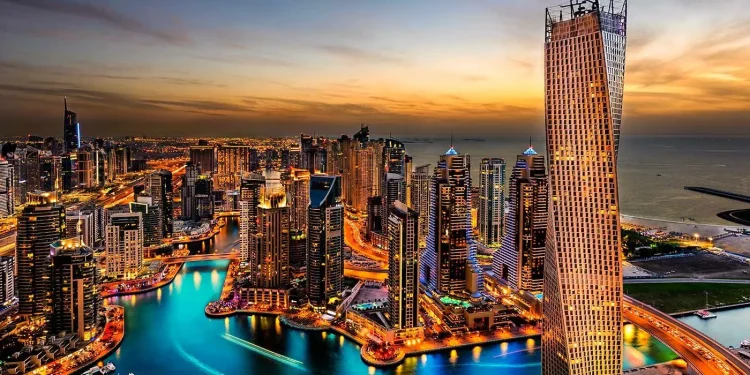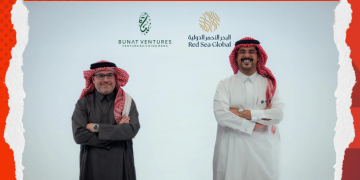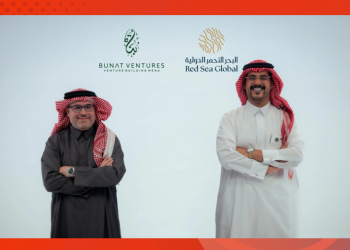Some countries sit around hoping the future will arrive on its own. They wait for innovation to land like rain, collecting whatever progress trickles in from abroad. The UAE does the opposite. It treats the future like something you build brick by brick, class by class, robot by robot.
Walk through Dubai or Abu Dhabi and you can feel it. The country behaves like the future is a construction site and everyone has a role. Not in a loud or dramatic way. In a steady, intentional way that shows they are preparing for decades, not headlines. They want to be the place that makes technology, not just the place that buys it. And this year, the signs have become impossible to ignore.
A Gold Medal That Means More Than “Congrats”
Team UAE winning gold at the 2025 FIRST Global Challenge sounds like a good moment on paper. A robotics competition. A proud weekend. A few photos. But it is more than that. It is a glimpse into the kind of people the country is growing.
A win like that does not happen by accident. It takes training, funding, coaching, and belief. It shows that young people in the UAE are not just consuming global technology. They are competing with the best minds from 193 nations and walking away with the top spot. That kind of victory is a signal. It tells you the country is investing deeply in talent, not waiting for capability to appear on its own. One gold medal will not change the world. But the system that produced it might.
Skills Are Becoming National Infrastructure
Most places think of infrastructure as roads, bridges, ports, and power lines. The UAE has added something new to that list. Skills. The kind that shape entire industries. The kind that decide whether a country builds technology or simply buys it.
The 403 graduates from ADNOC Technical Academy carry that message quietly but clearly. They are not just walking away with certificates. They are walking into a future where robots, automated systems, and AI driven operations are the new standard in energy, logistics, and manufacturing. The country is training people the same way it builds airports. With intention. With scale. With a plan stretching far beyond the present moment.
This is not a country trying to catch up. It is a country preparing its own bench of engineers, operators, and innovators who can keep its ambitions moving without depending on imported expertise. In the long run, that is the real power.
Microsoft’s 300,000 Learners Show This Is About Scale
When Microsoft announced an AI training programme for more than 300,000 learners in the UAE, it sounded bold. Almost unbelievable. But once you look closely, it fits the pattern perfectly. The country does not want only a handful of experts. It wants a population that understands the language of the next century.
Training that many people moves AI from a specialised skill into a national baseline. It means teachers understand it. Students use it. Government workers apply it. Small business owners experiment with it. And corporate teams build with it. This is how you prepare a society for a future where every sector has some form of automation, data, or machine intelligence woven into it.
It is easy to launch a pilot programme. Harder to train hundreds of thousands. But scale is what turns ambition into actual capability. And the UAE seems committed to building a workforce that can support whatever technology it decides to bring into the world.
The Shift From User To Maker
Every country uses technology. That part is easy. The real difference lies in who builds the systems the rest of the world relies on. The UAE is positioning itself to sit on the side of creation. The robotics win, the ADNOC graduates, and the nationwide training push are not isolated events. They form the outline of a strategy that aims to reduce dependency on imported expertise.
For decades, the region relied heavily on external contractors for advanced technical work, from industrial automation to large scale digital infrastructure. That model created progress, but not always internal capability. What the UAE is doing now is different. By investing in talent pipelines early, they are building the conditions for companies, research teams, and local innovators to design solutions instead of waiting for them to arrive from elsewhere.
This shift will not happen overnight. But if the foundation keeps growing, the UAE could become one of the few places in the Middle East where robotics, AI driven systems, and industrial automation are designed locally instead of only implemented locally. The long term payoff is deeper control over its economic future.
Why It Matters For The Region
The UAE’s approach sends a clear signal to emerging markets in Africa, the Middle East, and Asia. It shows that building a tech driven future is not only about funding expensive tools. It is about training people who can operate and improve those tools over decades. Many countries announce innovation plans. Fewer invest in the human infrastructure needed to sustain them.
The UAE is demonstrating what that investment looks like at scale. Thousands of students trained. Hundreds of graduates entering technical fields. Global partnerships that prioritise knowledge transfer rather than simple deployments. These steps give the country the internal capacity to adapt quickly when technologies shift. And they offer a roadmap for other economies that want more than surface level innovation.
When a country builds skills instead of relying on imports, it gains independence in the industries shaping the next century. Robotics, AI, automation, energy tech, and advanced manufacturing become spaces where local talent can compete. The UAE is building that foundation now.
A Country Choosing Its Future
Seen together, the UAE’s recent moves do not read like isolated achievements. They look like a long term decision about the kind of nation it wants to be. A place that treats skills as seriously as infrastructure. A place that invests in its people before the world demands it. A place that knows the future is not something you wait for. It is something you build.
The robotics win is symbolic. The training programmes are structural. And the overall message is simple. The UAE is moving from using technology to shaping it. The path ahead is still unfolding, but the intention is clear. They are building the capability that will define their next generation.













